Reading the tea leaves
Panel looks at lessons of the November election and offers a General Assembly preview
Reading the tea leaves
Panel looks at lessons of the November election and offers a General Assembly preview
Virginia Business discussed November’s election results, the upcoming General Assembly and the reverberations of Gov. Bob McDonnell’s conviction during its annual Political Roundtable held Nov. 11 at The Jefferson Hotel. Virginia Business and audience members posed questions to a group of Virginia politicos. The panelists included: Whitt Clement, a partner in the government relations practice of Hunton & Williams LLP who formerly was state transportation secretary and a delegate from the Danville area; Chelyen Davis, assistant editorial page editor and former political correspondent at the Free Lance-Star in Fredericksburg; Ben Dendy, president of Richmond lobbying firm Vectre Corp. and a former senior staff member of two governors; Stephen Farnsworth, professor of political science and director of the Center for Leadership and Media Studies at the University of Mary Washington; and Chris Saxman, a former House of Delegates member from Staunton and the executive director of the business advocacy group Virginia FREE.
Virginia Business: Steve, what is the takeaway from last week’s Senate election for [Republican Ed] Gillespie and [Democratic Sen. Mark] Warner?
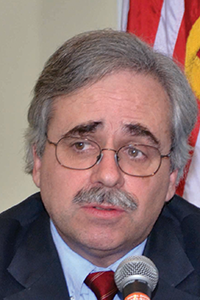
But in terms of what the election means, I think this puts Ed Gillespie in a very appealing position for a future run. A lot of Republicans have come up against Mark Warner and other Democrats in statewide races, and few have done as well. So the prospect of another Gillespie campaign seems pretty likely.
Dendy: I think the other thing is it was a very bad day for Democrats across the country. And probably in many ways Mark Warner is the last man standing, one of the few Southern Democrats. And the really amazing thing I thought, I’d never really seen this before, but he had [voter approval rating before the election] 7 percent above the vote that he got … I think it says Virginia is an extremely competitive state. Mark Warner got a little less than 2,000 votes more than Terry McAuliffe [in his 2013 run for governor.] So there’s a base Democratic vote and a base Republican vote, and whoever turns their vote out is going to win.
Davis: One of the interesting things for me, because I’m from Southwest Virginia, was watching how thoroughly Mark Warner got thumped in Southwest Virginia where he did very well in 2001 [in his gubernatorial campaign]. I think it probably means something for Democrats in the future about how the Southwest and Western parts of the state are really red now. And when I started covering politics, if I recall correctly, Democrats’ path to victory was Southwest or part of Southwest and the Urban Crescent. And now it seems so concentrated in Northern Virginia because of demographic changes.
Saxman: And we also had 1.7 million fewer voters show up than voted in 2012 just two years ago. So you have to be very cognizant of that. And one thing, if I was Mark Warner, I’d send a thank-you note to Don Beyer for running [for Congress in Northern Virginia’s heavily Democratic 8th District]. Don Beyer [a former Democratic lieutenant governor] won by 65,000 votes in that district … Why a Republican ran in that district, I have no idea. It’s just stupid if you’re trying to win a statewide election. And people talk about the [votes for Libertarian Robert Sarvis] messing it up. I think that decision to have a contested election in the 8th was more detrimental to the actual outcome of this election, even though you couldn’t tell that far in advance.
VB: Now that the U.S. House and Senate are under one party, is there any chance of a change in federal defense budget cuts? And what could that mean for Virginia?
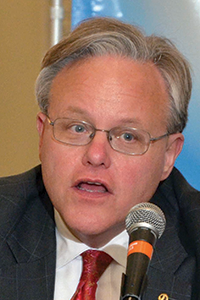
Clement: Well, I think it’s also relevant that [former Republican House Majority Leader] Eric Cantor is not going to be there nor [will Democratic] Congressman [Jim] Moran [of the 8th District]. Whether there were defense cuts or not, Eric Cantor in his position was able to make sure or to help blunt the impact in Virginia.
Farnsworth: It really is extraordinary when you consider all the seniority that has disappeared from the Virginia delegation with this cycle. In addition to the names that you’ve already heard — Cantor and Jim Moran — there’s also [Republican] Frank Wolf [who retired from the 10th District seat after serving more than 30 years] … So you’re looking at a situation where Virginia had been very, very effectively positioned to make sure that cuts, if they occurred, were disproportionally directed toward other states, and that’s going to be a significant problem. But I think that as we look at the world today, as was just said, it’s such a difficult environment for America, whether it’s ISIS, or China, or Russia, it behooves us to think about all that in the way of cuts in this circumstance. And that may be the best insurance for Virginia, the global instability more than the local delegation in the next few years.
VB: What effect will Bob McDonnell’s conviction have on Virginia’s political culture? And do you think a stronger ethics bill will be passed by the General Assembly [in 2015]?
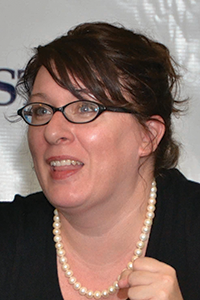
Clement: And I also think that it offers an opportunity for Governor McAuliffe, who lost on the Medicaid expansion debate last winter, to have considerable leverage on the ethics issue … Whatever it is they might agree on to send up for his review and signature gives him a lot of leverage, because, I think, it’s going to be very difficult to vote against stronger [recommendations from the governor]. I think they’ll all be concerned about being accused of being weak on ethics in view of the McDonnell trial.
Saxman: I think it’s going to go very much the way the federal system is going. I think you’ll see an inordinately less transparent political structure in Virginia. I think deals will be struck, made, press releases issued. And then they’ll come out and vote on it. And there will be a lot less openness. You’ll see a lot more closed doors because people do not want to get mic’ed up. They don’t want to get caught.
VB: Speaking of ethics, we’ve mentioned briefly Senator Puckett. In an opinion piece about the resignation of Senator Puckett, Larry Sabato said, “None of the wheeling and dealing surrounding Puckett strikes me as criminal.” Is Puckettgate, then, just politics as usual? [Editor’s note. A federal probe of the incident ended in December with no charges filed.]
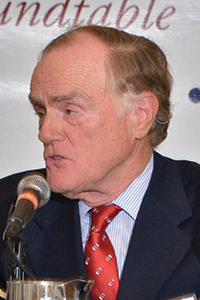
Saxman: I think unless we start seriously considering dramatic increases in pay, these are going to continue to be difficult situations for legislators. Senators make $18,000 a year; House members make $17,642. It equates to about $8.50 an hour. If you want maximum talent, you can’t pay them minimum wage.
Farnsworth: One of the problems of the situation in Virginia is, because of the lack of full disclosure about family members and various kinds of assistance that lawmakers can get from would-be donors, you’re not necessarily all that clear where exactly the lines are. I think there was widespread public revulsion when you look at the polls with respect to the kinds of goodies that went the governor’s way, but where exactly are you on the safe side of the law?
And I think without some sort of clearer, tighter standards … that’s going to be very much in the lawmakers’ interests themselves. And that’s why I think there would be a great interest in not talking about this for months but rather to come up with some plan that can move through pretty quickly.
VB: If I understood you correctly, that there will be less transparency because there will be more fear, there will be more backroom deals. To me, that seems to be the message that the public wasn’t sending, [that] people were saying they didn’t like what happened with Governor McDonnell. And so that seems like not better government but more secretive government.
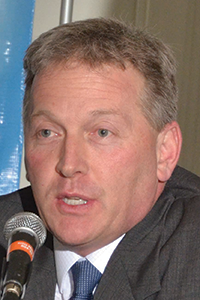
And so what happens is you’re going to consolidate power into even fewer people, and it’s very dangerous.
Clement: I tell you, maybe a broader issue, the McDonnell convictions really create a great deal of a gray area in going forward — not just among the legislators but very much so in the lobbying community … Whatever this new state law is, it doesn’t get around these gray areas on official acts and honest services, that for people who are conscientious and try to play by the rules, it’s going to cause a lot of rethinking on relationships and political giving.
VB: Well, if the deals are already being made, let’s talk about transportation. Are there any fixes in the works for the state’s public/private transportation law to prevent another Highway 460 debacle [in which hundreds of millions of dollars were spent without getting environmental permits]? And what needs to be done about transportation funding in general?
Clement: There is a big concern that the General Assembly is going to overreact in view of the issues associated with the Route 460 [Public-Private Transportation Act] project. … Legislators, particularly those from the Hampton Roads area, whose constituents are furious with the imbalance in that partnership for not just 460 but also the [construction and expansion of the Midtown and Downtown tunnels], are going to put in legislation we’re concerned that goes too strong and discourages the private sector from investing in Virginia.
So there will be an effort to temper that movement. As one of the business participants in public/private partnerships said to me at a meeting earlier this year, “We can evaluate business risk. That’s our job, we’re good at that. We can’t make assessments on political risk.” And so if we inject politics into the PPTA process, it will throw a wet blanket on the many success stories we’ve had in Virginia on PPTA.
Farnsworth: When you look at the very tight fiscal realities that Virginia faces, particularly going forward, the revenue prospect is not particularly bright … I think from the point of view of business in Northern Virginia in particular is the time tax — the amount of wasted time, wasted energy that comes from being stuck in traffic. And that really painful reality, I think, costs Virginia far more than we even know because I can imagine a lot of executives coming on vacation with their families, looking at Tysons, looking at the Beltway, looking at 95, and saying, “I don’t want this to be my life every day.”
Saxman: I agree with you. Northern Virginia commercial vacancy rate is staggering right now, I think principally because of the time tax … You can’t build new roads in Virginia to build out their infrastructure, to support a 21st-century economy without private capital. It can’t be done. Won’t be done. You can’t tax your way to it. And with the problems you have with 460, this creates a whole host of problems for a legislator to suggest to his constituents that it’s OK to invest in roads when you’ve just had this tax increase and this debacle. So you have to get this right. You can’t overreact. The PPTA has to be guarded and protected because you won’t attract the private capital.
VB: Steve, could new redistricting maps in Virginia make congressional races more competitive?
Farnsworth: Well, it’s hard to imagine them being less competitive. If the court decision [by federal judges finding the current district map is unconstitutional] is upheld on appeal, and Virginia has to draw new lines, it doesn’t seem likely that everybody wins with 60 percent of the vote as is the norm here in Virginia now … My guess, though, in terms of how it would be done is I’d likely anticipate most of the pain being endured by [U.S. Rep. Dave Brat] in the 7th District, not part of the Republican establishment, not an established member of Congress, and one who knocked off Eric Cantor, who had more friends than [Brat] does in Virginia politics.
So if we were to guess, I think that would be where the real pain would come, more in the 7th than say the 4th.
VB: Since McAuliffe would have to approve a new redistricting plan created by the legislature, is that going to potentially give him more leverage in the General Assembly this year?
Clement: Absolutely. I think redistricting and ethics both breathe new life into the governor’s ability to impose forced compromise, which he didn’t really see a lot of his first year. And if the governor had his way, I’m sure he would like to spread that leverage over more issues than just ethics and redistricting.
Saxman: The timing here is critical. If it happens outside of session, what leverage do you have? And are you willing to hold up the budget again to do this all over again a year after we’ve done this? And Virginia gets tired of politics after a while … And the entire General Assembly is up [for election] in 2015. They’re going to want to get it done.
Davis: I would just point out it’s not just Republicans redrawing districts. While, yes, they hold the majorities in both houses now and would have the final say on the bills apart from McAuliffe, there are Democrats that would benefit or lose from the new maps as well, and they’re going to have something to say to McAuliffe about it as well.
Audience question: I’m a little surprised we haven’t had any questions about health care, and I don’t know if that’s a sign of our fatigue or the impasse that we’re sort of at at this point. But I’m wondering [if there will be] common ground there in terms of where we’re looking at, heading in this next session?
Clement: Well, I hope I’m wrong. I don’t think it’s going to be any different in this coming session. I do think, down the road, they will come together in Virginia, the General Assembly and the governor or the next governor on addressing the gap in services in Virginia among a lot of people who, it’s well documented, do not have health insurance. But I don’t think we’re going to see it this winter.
Farnsworth: I think only a Republican governor can get Medicaid expansion through the Virginia legislature. I think it has to wait until Obama is a former president for there to be much movement in that situation … And I’ve always thought that McAuliffe was extraordinarily optimistic in putting as many cards as he did down on the Medicaid expansion question. I never really saw it as a politically viable strategy given the Republican domination of the General Assembly and given the incentive that most of those Republican lawmakers face for their own re-nominations.
Saxman: A couple of factors in 2015 you have to consider are that there will be a couple more court cases decided by the United States Supreme Court on this, and you’ll also have the individual mandate coming to fruition in 2015. I think those are significant political questions that have to be answered before one can even discuss that. And I think the politicians, the legislators, are going to go, “I’m not touching this until individual mandate is settled and the Supreme Court cases are settled.”
Dendy: I think the timing was very difficult on the Medicaid expansion … The transportation package passing the year before Medicaid expansion, several Republican legislators, particularly Beverly Sherwood, who is a highly regarded legislator and was going to be chairman of the House Appropriations Committee, and she lost her primary. I think that made coming in a second year and doing something that was so contrary to what their base wanted made it very difficult to get it through.
Audience: In the past decade or so, the commonwealth seems to have laid off a lot of monetary responsibilities on the counties and cities. Do you see that in light of the budget issues that are taking place right now that more of that is going to happen going down the road?
Davis: I feel like that has been an issue as long as I have been covering government and politics. I had just sort of assumed it was something inherent to government. The feds threw it to the state, the state throws it to the localities. I would be surprised if that ever changed. I think for lawmakers, it’s easy to say here’s this lovely policy, now you go figure out how to pay for it. Easier to say that.
Audience: I would ask your personal opinion, did Governor McDonnell’s jury get it right Why or why not?
Clement: Well, in my opinion, I don’t think it really mattered what the jury instructions were … I think most lawyers debate whether or not the case should have even come up. But once it did, and you had a jury, and the way the prosecution was able to present their case, and you saw the poll results, people said, “Yes, they should have been convicted.”
Saxman: I think this was a test case, a chance for the prosecution to go after something in the states they don’t like. This is the federal government enforcing federal law on state government … To the merits of the case, I don’t know. I … didn’t follow it every day. Do I think Bob McDonnell is a criminal? I don’t. I think a lot of bad things happened that shouldn’t have happened … And I think a lot of Virginians feel that way, especially because they know their politicians are relatively good guys that don’t do that kind of thing.
So we’ll see what the appellate courts say. And the Supreme Court I think will weigh in as well if it’s not overturned at the appellate level because this is an [honest services law] … I never heard of it before until this case and didn’t even know I was being held accountable to it. So that’s just the joy of having so many laws in this country.
Dendy: I thought it was interesting that, when the verdict came out, key elected officials of both parties were very complimentary of Governor McDonnell in terms of his service. So, I think you’re talking about someone that most folks feel had been a very good public servant. I think that he did show some bad judgment, but it certainly seems to me that the [verdict] is very harsh. And when I heard the juror interviewed on NPR, she said that they went down the list and on each one their kind of initial evaluation was: Was he treated differently than any other citizen of Virginia. And I don’t know many elected officials or businesspeople or anybody that could hold up to that criteria, because unfortunately life just doesn’t work like that. And that’s a pretty high bar to have to face.
s















